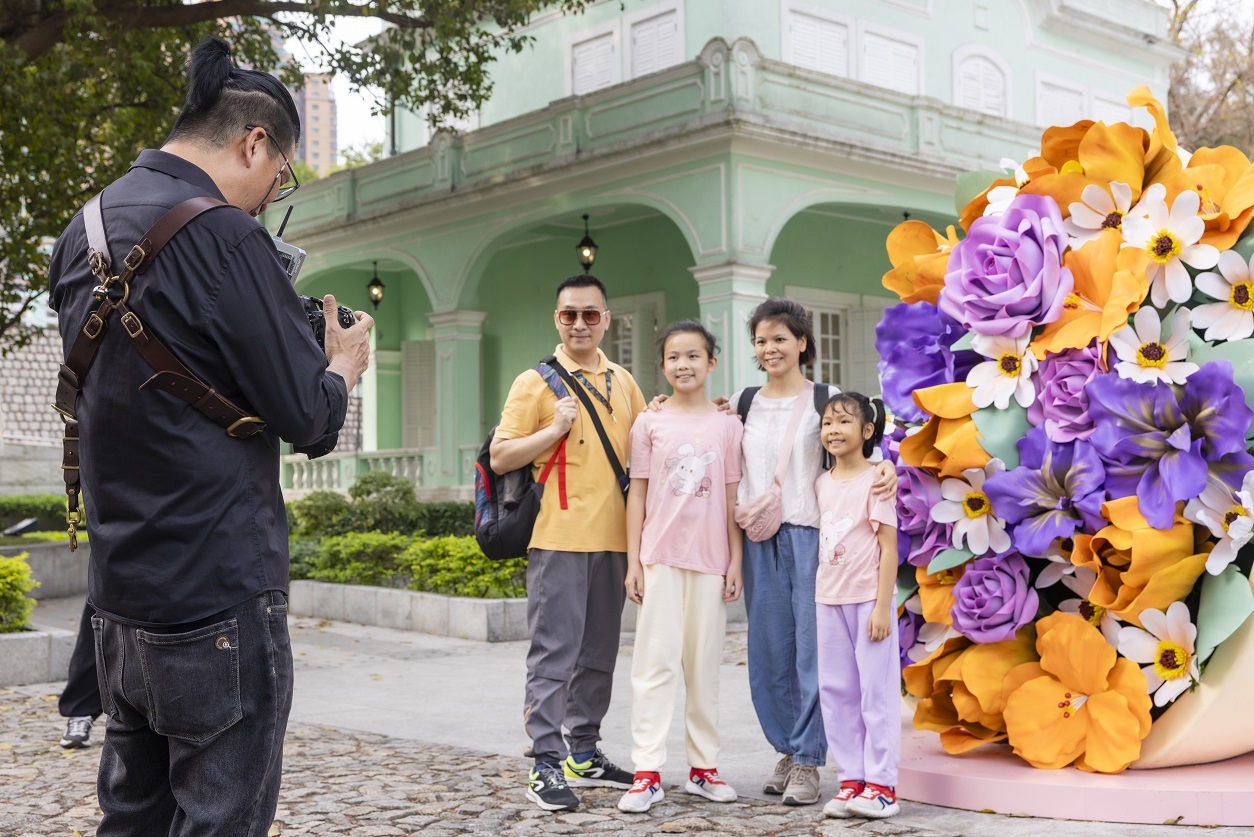Team building in China is evolving at an increasing rate. The competitiveness of Chinese employment markets, and the urgency for both domestic and multinational companies to invest in cross-team development has resulted in a mushrooming of team-building events. Client objectives are changing significantly, and locations and event content are diversifying.
Team building now closely follows economic patterns, as companies respond to the need to operate across different teams and geographies. Driving factors include the expansion of multinational company operations across China, and domestic firms seeking to develop more robust and flexible teams to meet the commercial challenges of global expansion.
“Initially, clients in China share some objectives with our clients in other markets in Asia, such as team bonding, networking and collaboration,” says Stuart Harris, founder and co-director of Team Building Asia. “However, in China we are seeing an increasing focus on cross-team collaboration and cross-functional collaboration.”
Hitoshi Yoshida, managing director of Beijing-based I Will Not Complain (IWNC), agrees. “When we opened our training company in China 17 years ago, multinational companies were looking for ways to integrate Western and Chinese staff, cultures and ways of doing business. They wanted outdoor team events that helped them deal with cross-cultural issues. Chinese companies were not spending money on team building at that time.”

Location as inspiration
The expansive growth of China’s economy and the ambitions of local companies altered the game. “Markets are changing, competition is getting very tough and Chinese consumers are demanding ever-higher quality, so companies have been forced into recognising the need for team development to improve productivity and profits,” says Yoshida.
IWNC manages the Great Wall Courtyard team-building centre adjacent to the Jinshanling section of the Great Wall of China. Open from April to November each year, it hosts an average of two team-building groups per week, with each group ranging in size from 20 to 50 people. “Companies need more from their team integration now,” says Yoshida. “We do a lot of demanding team-building events at the Great Wall Courtyard. It’s not just about outdoor activities, many clients hold facilitated discussions to ensure its staff understand, and are aligned to, company objectives.”
The Great Wall was chosen for the IWNC team-building base because of its inspirational qualities, says Yoshida. “The Great Wall is a good environment for team building. This man-made structure is a sense of pride for Chinese people. It is clear that to construct it, there was a vision – and the power of making that vision real is very inspiring.”
Isolation is another motivating factor. “The great views of the mountains and nature add to the inspirational nature, but we are also very isolated. Once we have hiked outdoors on the Wall, we don’t want people to use computers. We want them to open up and talk,” adds Yoshida.
Creative activities
Team Building Asia creates both events-based and training and development team-building programmes in China. “Training and development works better for smaller, newer teams in China. They often form part of an integrated Leadership or Values Awareness programme provided by the company’s Learning and Development Team, where our team-building section is to reinforce and integrate the learning,” says Harris. Events-based team building usually takes place as part of a conference or offsite event, as there is a strong sense of business purpose and objectives are readily reinforced.
Creativity remains a key element. “We held our ‘Creative Juices’ team-building activity at a resort with an organic farm in Suzhou,” says Harris. “This provided an excellent backdrop to this business simulation, where teams traded and negotiated fresh fruit to make real smoothies, and created real marketing campaigns to support them.”
Team Building Asia also ran a “Mission Possible” high-tech adventure hunt across World Heritage sites, finishing up at the Great Wall, and delivered a “Flat Out Rickshaw Rally” in Sheshan, where teams made a real life-sized Chinese rickshaw from large pieces of cardboard and completed a competitive rally to win prizes. “This promoted Chinese culture, and most venues in Sheshan have excellent outdoor facilities,” explains Harris. Another team-building option is “River Runner”, an indoor whitewater rafting business simulation in Huizhou, where – amazingly – teams do not actually get wet.
A tasty new approach
Hong Kong-based FRANCESCA Ltd’s “Enrich your Potential” programme is heading to China. It recently worked on the Women Executives Summit in Hong Kong, where the focus was on “leading, sharing and connecting”. Its events address key team issues of “commitment, empathy and awareness, cultural and adversity management, mutual respect, the ‘we’ approach, project ownership, self-awareness and leadership style,” says Francesca Maeder, the company’s managing director.

In December, its Enrich Your Potential team events in Shanghai will offer a fresh approach, as participants are encouraged to bring their partners. “We work with executives and their partners to create the strongest team possible. It is based on the philosophy of Yin and Yang, creating balance in your life and the way you collaborate to get the best results,” says Maeder. The reason for inviting partners is simple, she says: “Your partner is the closest person to you, the one who knows you best, and the one who can best help you expand your comfort zone.”
Another innovation is the inclusion of chocolate experiences in team building – an idea developed by Maeder, who is a professional chocolatier. The company has already incorporated Chocolate & Wine Pairing, Chocolate & Meditation and Chocolate & Art workshops into team-building events in Switzerland, Germany, Hong Kong and Singapore.
“Chocolate can be so deep,” says Maeder. “We are all connected through chocolate, it is a part of all cultures and something we all share. It is very symbolic, and perfect for team playing because it can inspire people to think differently and expand horizons.” Maeder says the idea to use chocolate in team building came from her clients, who told her that they not only enjoyed her products, but that eating chocolate made them think more about their ambitions and desires.
“Chocolate and wine can be perfectly integrated as people can discover themselves by exploring all their five senses,” says Maeder. “Often we do an integrated personality matching as different types of people prefer different types of chocolate – and therefore, the wines need to be adjusted. This helps teams to better understand themselves and their peers and what they care about, because their underlying values will be evaluated.”
THE PROFESSIONALS
I Will Not Complain (IWNC)
Tel: +86 10 8527 6136
Email: greatwall@iwnc.com
Team Building Asia
Tel: +86 21 6083 1155 ext 114
Email: shanghai@teambuildingasia.com
FRANCESCA LTD
Tel: +852 2522 7689
Email: francesca@enrichyourpotential.com
naked Retreats
Tel: +86 21 6431 8902
Email: groups@nakedretreats.cn
CASE STUDY:
Location: naked Stables Private Reserve, Moganshan
Event management: naked Stables
Client: Aquaspace Teambuilding
Time of year: November
Total participants: 56

Client objectives:
A one-day strategy meeting in the Teahouse and wine-pairing dinner for a10-person management team, followed by two days of cross-department team-building activities amid a beautiful mountainside setting with lakes, tea plantations and bamboo groves for 46 staff plus the management team.
Key creative elements:
This was the first team-building event held at the naked Stables Private Reserve since its opening in late 2011. The objective was to utilise the beautiful scenery with active and creative programming. As the main group arrived on Day Two, the management team served a buffet banquet for everyone in the Clubhouse. For the activities, eight cross-department teams were selected at random, and each team had to create their own team name and flag, and choose a team captain.
Mine sweeper:
Printouts of the letters of the alphabet were placed face down for each team, and a blindfolded participant had to spell out a selection of words by listening to guidance from his/her peers to collect the correct letters. Marks were deducted for touching or bursting balloon “mines” dotted around the 4×4-metre area.
Sword hunt:
Teams were challenged to work together and race to break symbol codes to find the locations of two swords hidden within the resort area.
Orienteering challenge:
Teams were set a task of finding their way on foot to naked Retreats’ sister property naked Home Village. Simultaneously, they took photos on the mountainside and in local villages based around themes such as “on top of the world” and “how to make a naked host smile”. Afterwards, bicycles were provided for an optional cross-terrain ride back to the reserve.
Building challenge:
Each team was tasked with building a replica of a famous world landmark using materials such as cups, paper plates, rubber bands and straws. Judging was based on resemblance to the original building and creativity.
Grand finale:
At the gala dinner on the last evening, teams had to present their photo presentations to the whole group. Individual prizes were awarded for particular activities, and an overall Grand Prize was given to the winning team.
Client feedback:
Paul Karvandi, director at Aquaspace: “A simply perfect event. During the final dinner, I felt that the team spirit in our company had never been higher. The way this event was organised played a clear part in bringing that about.”
VOLUNTEAMING
VolunTeaming is part of The Ritz-Carlton’s global social responsibility programme, Community Footprints. It combines team building with volunteer activities, and is based on the notion that many groups want to use team building to make a meaningful contribution to local communities, and to personally connect with the place they are visiting.

The Ritz-Carlton Beijing Financial Street offers groups of up to 20 people an opportunity to support Sun Village Beijing, a non-governmental charity providing foster care and education for the children of prisoners. Founded more than 14 years ago, Sun Village is now home to around 130 children from across China.
Each activity takes four to five ?hours, and team-building groups can take part in maintenance, house cleaning and painting and decorating, and help the kids to harvest strawberries to sell. Among recent participants in the programme was a team-building group from Chinese telecoms giant Huawei.
Gary Bowerman


